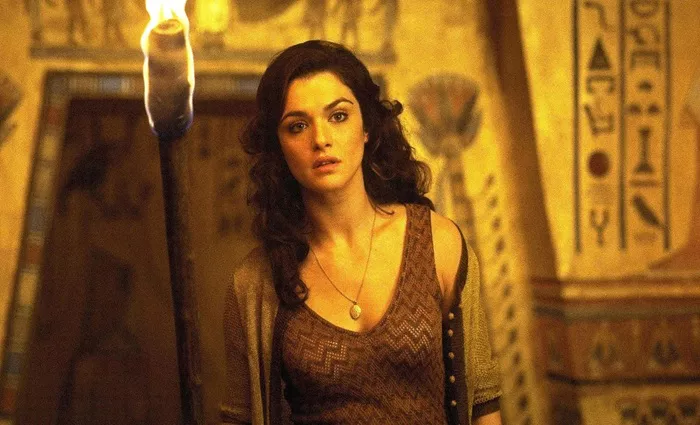The 1999 blockbuster film The Mummy became a defining adventure movie of its era. It combined thrilling action, supernatural elements, and captivating performances. Among the original cast, Rachel Weisz stood out as the intelligent and courageous Evelyn Carnahan. Her portrayal won the hearts of audiences worldwide. However, when the franchise was rebooted years later, Rachel Weisz was replaced by a different actress, sparking curiosity and questions among fans. Why did this happen? This article dives into the reasons behind the casting change and explores the broader implications within the film industry.
The replacement of a beloved actor in a successful movie series can be jarring. It impacts both the continuity of the story and audience attachment to the character. Understanding the behind-the-scenes decisions reveals much about how the film industry operates. From contract negotiations to creative direction, multiple factors influence such choices. This article carefully analyzes these reasons, providing a comprehensive look at Rachel Weisz’s exit and the introduction of a new lead in The Mummy reboot.
The Original Mummy and Rachel Weisz’s Role
Rachel Weisz’s performance as Evelyn Carnahan was pivotal to the original The Mummy (1999). The movie, classified within the adventure genre, balanced action with humor and romance. Weisz’s character was not just a damsel in distress but an intelligent Egyptologist with a strong will. This portrayal helped set a new standard for female leads in adventure movies.
The chemistry between Weisz and co-star Brendan Fraser contributed greatly to the film’s success. Audiences appreciated the dynamic between Rick O’Connell and Evelyn, which grounded the supernatural plot with relatable human emotion. As a result, Weisz became synonymous with the franchise’s spirit, creating a lasting legacy that many fans expected to continue.
Reasons Behind the Replacement
Scheduling Conflicts and Career Choices
One of the primary reasons Rachel Weisz did not return for the later installments was scheduling conflicts. By the time the sequels and reboot were in production, Weisz’s career trajectory had shifted towards more dramatic and independent films. This move naturally created difficulties aligning her availability with the production schedule of a big-budget adventure movie.
Moreover, Weisz was building a reputation in prestigious film circles, earning critical acclaim and awards. Returning to a franchise primarily known for action and fantasy might have conflicted with her professional goals at the time. The shift in career focus illustrates the delicate balance actors face between blockbuster fame and artistic ambition.
Creative Direction and Franchise Reboot
The film industry often opts to reboot franchises to attract new audiences and update stories for contemporary tastes. The Mummy reboot, released in 2017, featured Tom Cruise as the new lead and introduced a fresh take on the plot. This change included recasting the female lead to fit the new narrative style and tone.
The producers and directors sought a different kind of chemistry and character dynamic to fit the darker, more modern approach to the story. As a result, casting decisions were influenced by the reboot’s specific vision, which did not align with bringing back the original cast. This strategic move reflects broader trends in Hollywood where reboots aim to reboot not only the story but the whole brand image.
Financial and Contractual Factors
Contract negotiations play a crucial role in casting decisions. Actors from successful franchises often seek higher pay or better contract terms for sequels or reboots. If these negotiations fail, studios may choose to cast new talent who fits the budget or aligns better with marketing strategies.
In the case of Rachel Weisz, it is believed that contract discussions did not lead to an agreement that satisfied both parties. This outcome is common in the film industry, especially for high-profile projects with large budgets and complex production demands.
Impact of the Replacement on the Franchise
Audience Reception and Criticism
The replacement of Rachel Weisz sparked mixed reactions. Some fans were disappointed not to see the original Evelyn Carnahan return, feeling a loss of continuity and emotional connection. The new actress, while talented, had the challenging task of filling iconic shoes under intense scrutiny.
Critics and audiences often compare reboots with their predecessors, and changes in casting can affect reviews and box office performance. The reboot’s reception was lukewarm compared to the original, with many attributing this partly to the absence of original cast members. This shows how critical consistent character portrayal is in sustaining franchise loyalty.
New Direction and Opportunity
Conversely, the replacement allowed the franchise to explore new storylines and character arcs. The reboot offered a different perspective on adventure movie plots, blending horror elements with modern action sequences. This shift created opportunities to attract a younger, more diverse audience.
Changing the lead actress also reflected the evolving landscape of adventure movies, where roles for women have become more varied and complex. The new casting was part of a broader effort to revitalize the franchise and keep it relevant in a competitive market.
Conclusion
Replacing Rachel Weisz in The Mummy was the result of a combination of factors: scheduling conflicts, creative reboot choices, and financial considerations. While it disappointed some longtime fans, it also highlighted how the movie genre evolves over time to meet new audience expectations and industry trends.
The story of Rachel Weisz’s replacement serves as a case study in understanding the complexities behind casting decisions in Hollywood. It reminds us that films are not just artistic endeavors but also business ventures shaped by changing circumstances. For fans of adventure movies and the adventure movie plots they love, these shifts represent both endings and new beginnings.

